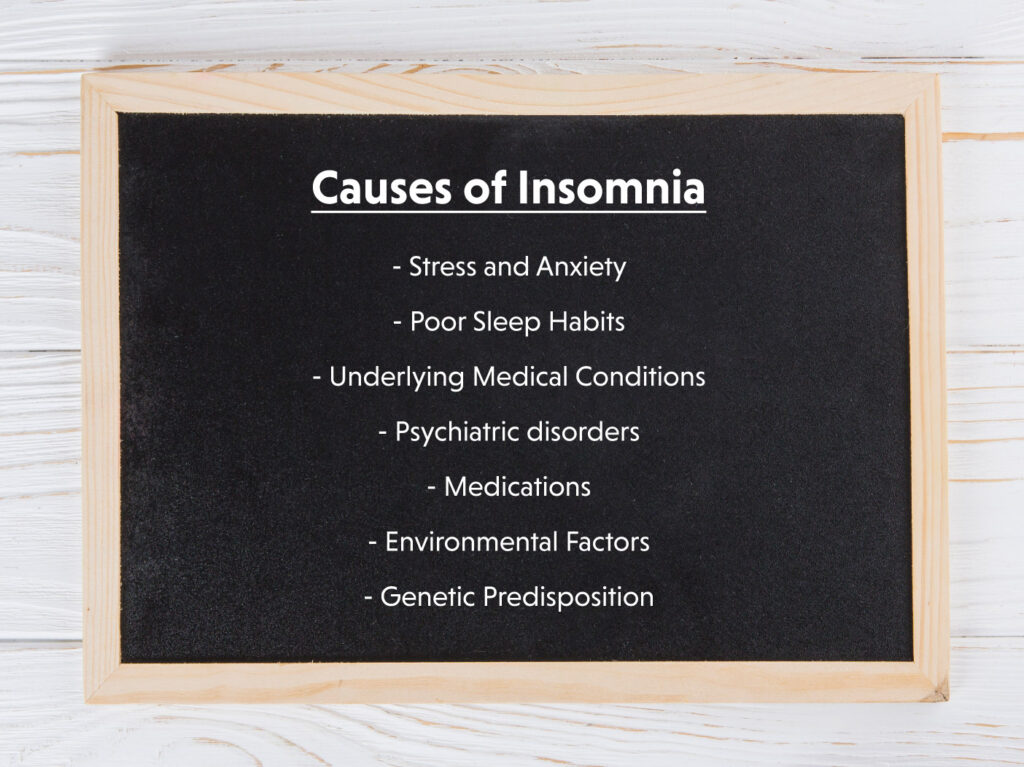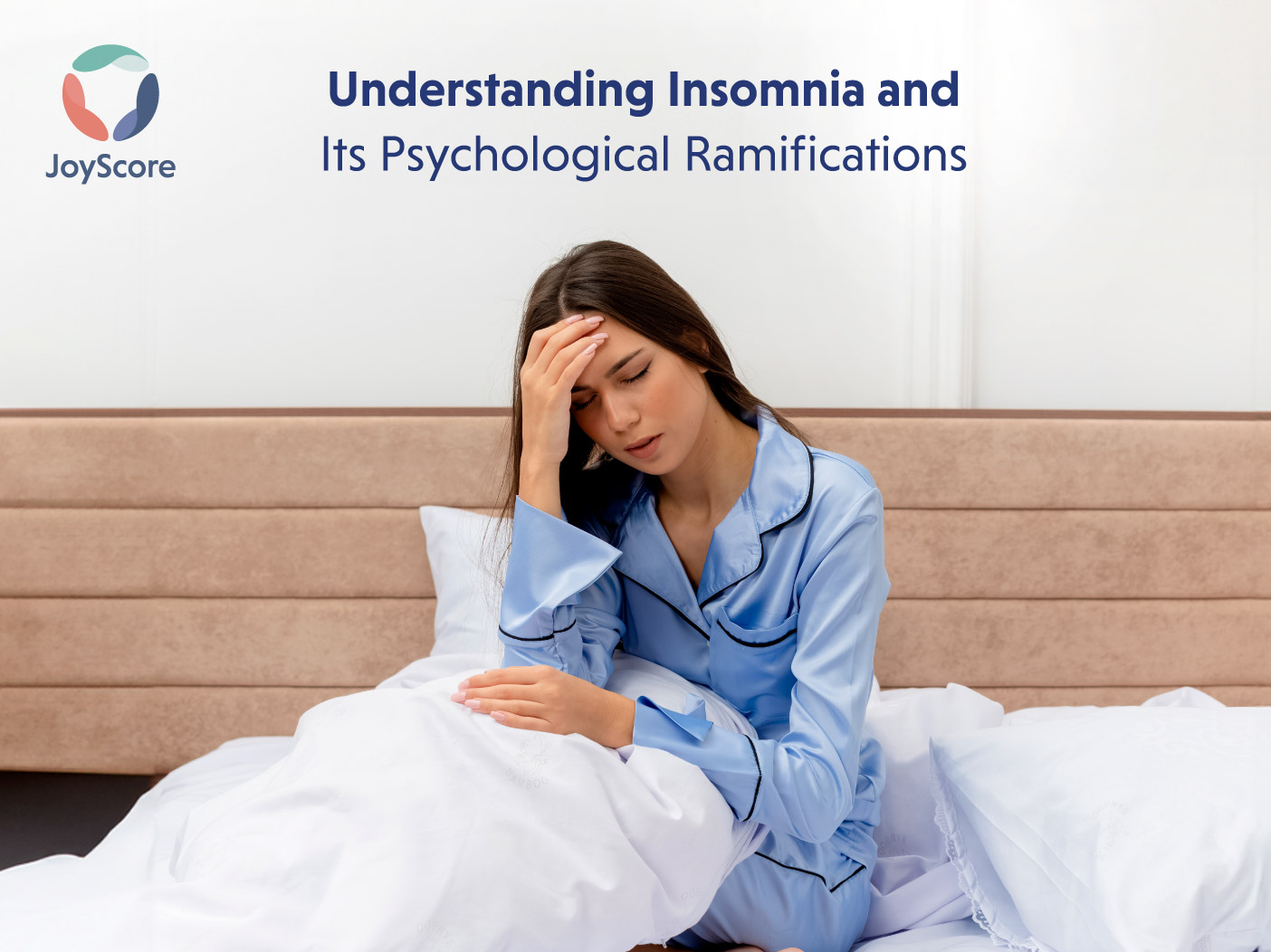When you find yourself unable to fall into a restful sleep, you may be contending with a condition referred to as insomnia. Impacting around 10% of adults globally, insomnia is defined by frequent sleeping problems, resulting in various daytime challenges. This article offers an in-depth understanding of this sleep disorder, its root causes, and some efficient treatment methods to mitigate its effects.
What is Insomnia?
Insomnia is a sleep disorder characterized by difficulty falling asleep, staying asleep, or experiencing non-restorative sleep despite adequate opportunity for sleep. Individuals with insomnia often wake up feeling tired, irritable, and unrefreshed, which can significantly impair daytime functioning and quality of a person’s life.
The Varying Forms of Insomnia
There are different types of insomnia, each lasting for different lengths of time and affecting sleep in various ways.
1. Acute insomnia: short-term sleep issues lasting from a few days to weeks, often triggered by stressful events like a job change or the loss of a loved one. It can also stem from noise, unfamiliar environments, discomfort, medications, illness, or jet lag.
2. Chronic insomnia: persistent sleep problems occurring at least three days a week for a month or more. Primary chronic insomnia lacks an obvious cause, while secondary chronic insomnia is linked to other medical or mental health conditions, medications, stimulants, or lifestyle factors.
3. Onset insomnia: difficulty initiating sleep, either short-term or chronic, often due to psychological issues like stress, anxiety, or depression. Other sleep disorders or stimulants, like caffeine, can also contribute.
4. Maintenance Insomnia: trouble staying asleep or waking up too early, leading to worries about sleep and creating a cycle of sleep disruption. It can be caused by mental health conditions or medical issues like acid reflux, sleep apnea, respiratory problems, restless leg syndrome, or periodic limb movement disorder.
5. Behavioral Insomnia in Childhood: It affects about 25% of children and is categorized into BIC sleep-onset (negative sleep associations), BIC limit-setting (delaying bedtime), and BIC combined type (a mix of both). Addressing these issues typically involves establishing healthy sleep habits and relaxation techniques.
The Underlying Causes of Insomnia

Insomnia can be caused by various factors, including:
- Stress and Anxiety: High levels of stress, anxiety, or worry can disrupt sleep patterns and make it difficult to relax enough to fall asleep.
- Poor Sleep Habits: Irregular sleep schedules, excessive screen time before bed, and consuming stimulants like caffeine or nicotine close to bedtime can interfere with the body’s natural sleep-wake cycle.
- Underlying Medical Conditions: Certain conditions, such as chronic pain, respiratory disorders, gastrointestinal issues, or hormonal imbalances, can contribute to sleepless nights.
- Psychiatric disorders: such as depression, bipolar disorder, and post-traumatic stress disorder (PTSD), can disturb sleep patterns, potentially resulting in insomnia.
- Medications: Some medications, particularly those that affect the central nervous system, may have side effects that interfere with sleep.
- Environmental Factors: Things like noise, light, temperature, and other stuff around you can mess up your sleep and make it hard to fall asleep, causing insomnia.
- Genetic Predisposition: Some individuals may have a genetic predisposition to insomnia, making them more susceptible to sleep disturbances.
Recognising the Symptoms of Insomnia
If you’re grappling with insomnia, you may experience the following symptoms:
- Difficulty falling asleep
- Difficulty staying asleep
- Waking up too early
- Feeling tired and irritable during the day
- Daytime sleepiness
- Mood changes
- Lack of motivation
- Attention, concentration, or memory problems
Diagnosing Insomnia
To diagnose insomnia, your healthcare provider will typically conduct a comprehensive evaluation of your sleep patterns, stress levels, medical history, level of physical activity, and use of medications. They may recommend keeping a detailed log of your sleep habits, such as sleep and wake times, napping, and any specific problems with sleeping.
Diagnosis might also involve a physical examination to identify health disorders that might be causing insomnia, such as obesity leading to sleep apnea. In cases where insomnia persists even after treatment, a referral to a sleep disorders specialist for an in-depth evaluation might be necessary.
Treating Insomnia: Approaches and Strategies
Insomnia treatment ranges from lifestyle changes to medication and cognitive behavioral therapy for insomnia (CBTI).
- Lifestyle Changes
The first line of defense against insomnia often includes lifestyle changes aimed at promoting good sleep hygiene. These might entail:
- Following a regular sleep schedule
- Creating a comfortable sleeping environment
- Avoid stimulating activities close to bedtime.
- Watching your diet and avoiding heavy meals late in the day
- Staying active through regular exercise
2. Medication
If lifestyle changes aren’t effective, your healthcare provider might recommend certain medications to help manage your sleeplessness. This could include sedatives, a minor tranquilizer, or anti-anxiety drugs. Please be aware that some sleep aids can become habit-forming or pose the potential for overdose if not used as directed.
3. Cognitive Behavioural Therapy for Insomnia (CBTI)
If insomnia continues to persist, cognitive behavioral therapy for insomnia (CBTI) might be recommended. CBTI is an effective treatment approach that helps individuals alter behaviors that exacerbate insomnia and learn new skills to promote sleep.
Self-Care While Dealing with Sleeplessness
In addition to the above strategies, self-care plays a pivotal role in managing sleeplessness. Keeping a sleep diary, ensuring a comfortable sleep environment, and dedicating time to relax before bedtime can significantly improve the quality of your sleep.
Conclusion
Insomnia sleep disorder is a common problem that affects many people worldwide. It can cause daytime tiredness, mood swings, and trouble concentrating. However, there are ways to manage it.
By making simple lifestyle changes like sticking to a sleep schedule and creating a comfy sleep environment, you can improve your sleep. If needed, doctors can suggest medications or therapies like CBT to help. Self-care practices such as keeping a sleep diary and relaxing before bed also plays a big role in improving your sleep.
Remember, getting a good sleep is essential for your health and happiness. By taking small steps and seeking help when needed, you can overcome insomnia and enjoy the days ahead.



